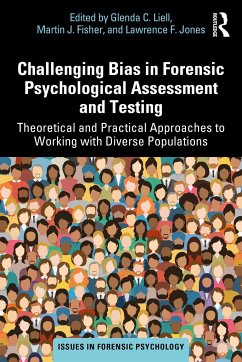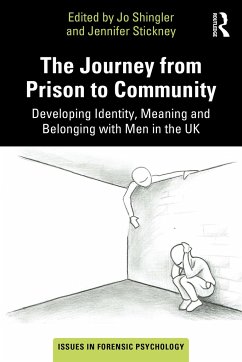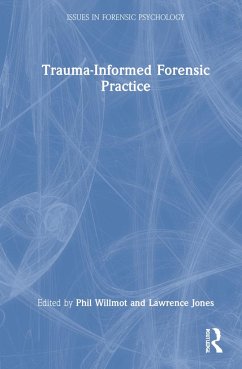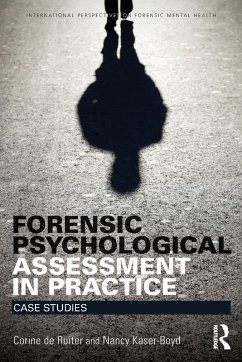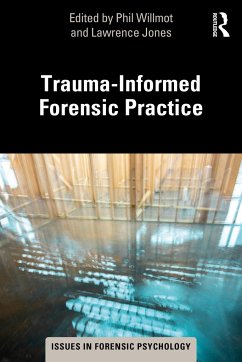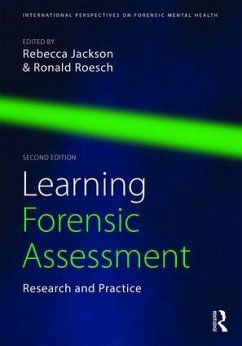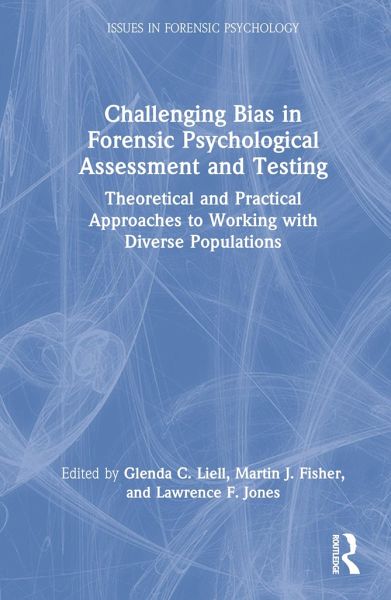
Challenging Bias in Forensic Psychological Assessment and Testing
Theoretical and Practical Approaches to Working with Diverse Populations
Herausgeber: Liell, Glenda C.; Jones, Lawrence F.; Fisher, Martin J.

PAYBACK Punkte
76 °P sammeln!
Challenging Bias in Forensic Psychological Assessment and Testing is a ground-breaking work that addresses the biases and inequalities within forensic psychology. It gives valuable insights into individuals practices and wider criminal justice approaches at an international level, while providing tangible solutions to tackle the disparities.




